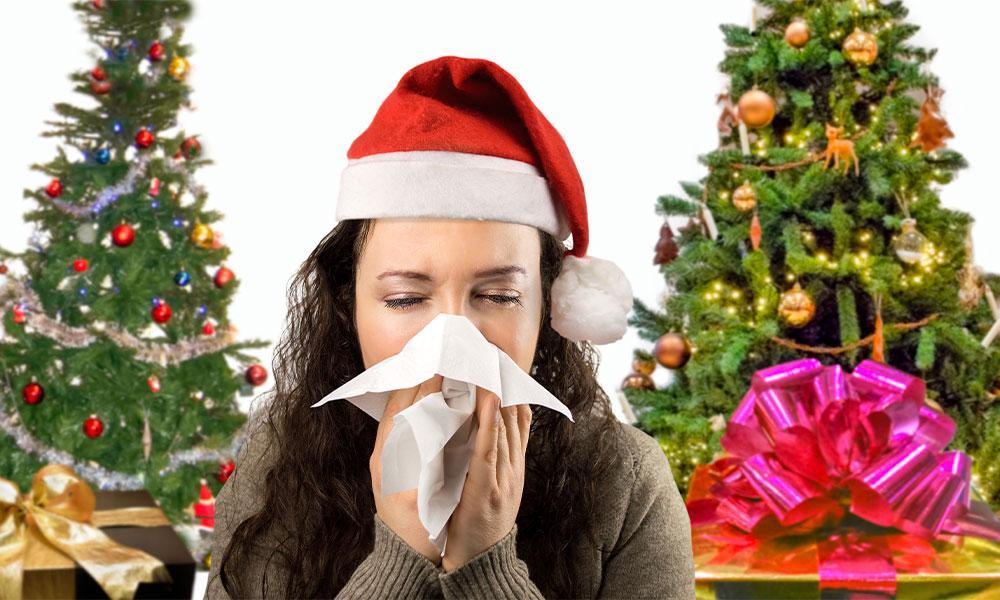
Allergy drops: a painless alternative to allergy shots

COVID-19 UPDATE:
Dr. Caballero is now offering TeleHealth video appointments for patients who prefer not to visit the office.
Video appointments are available regardless of which state you live in.
TeleHealth appointments are fully reimbursable by all insurance plans during the COVID-19 crisis (standard copay and deductibles still apply).
If you’d like to schedule a TeleHealth video appointment please do so by calling the office 847 655-7442.
Allergies are different than colds or sinus infections
Do you suffer from hay fever, seasonal allergies, or pet allergies? These conditions are different than your run-of- the-mill runny nose. While viruses and bacteria can give you similar symptoms as a result of a cold or sinus infection, true allergies can only be triggered by exposure to specific allergens. Common allergens include pollen (from trees, grass and weeds), molds, pet dander (from dogs and cats) and some pests (like dust mites and cockroaches.)
When your body encounters an allergen your immune system can react like it’s being attacked. The resulting reaction can cause not only a runny nose but also coughing, sneezing, itchy eyes, and more.
Treating allergies requires immunotherapy
You can get some relief from bacterial and viral infections with antibiotics and antiviral drugs, however but you get rid of an allergy by can’t “killing” an allergens. Instead you have to two options: you can try to avoid them entirely (which is never easy) OR you can train your body to not respond to them. That’s where immunotherapy comes in.
Simply put, immunotherapy is all about boosting your immune system by exposing you to controlled amounts of the allergens. Too little does nothing, too much can trigger a terrible allergic reaction. But your doctor can determine an allergen dose just large enough to stimulate your immune system but small enough not to trigger an allergy attack. Over time, your body gets used to having the allergen around without reacting to it. Eventually, as the doctor slowly increases the exposure level, you can tolerate exposure to higher and higher concentrations. With long term therapy (which takes 3 to 5 years) your body builds up an immunity and you’ll no longer be allergic to that specify trigger.
Historically, doctors have had to inject the allergens directly into your blood stream. Since it take years to retrain your immune system, you have to visit your doctor for a LOT of shots (which can mean a lot of inconvenience, time away from work, etc.)
Allergy drops vs shots: less pain and hassle

Fortunately, there is a better solution. With sublingual immunotherapy (also known as SLIT) the allergens are administered via drops that absorb under your tongue. Not only is SLIT less painful than a shot but the drops are so easy to use that you can give them to yourself at home or anywhere. Since you give the medicine to yourself, you don't have to visit the doctor as often which saves you time and money.
How does Sublingual Immunotherapy work?
The first step is to find an allergist who is experienced in SLIT. The technology is relatively new and many doctors only provide allergy shots. Dr. Nadia Caballero is currently offering Sublingual Immunotherapy at Advanced Sinus and Allergy Center. Dr. Caballero will perform all the necessary testing to ensure you’re a candidate for SLIT. Then, she’ll prepare a vial of drops that is custom made with your specific allergens. You’ll take the first dose in the clinic so she can observe any adverse reactions. Fortunately, compared to allergy shots, drops are 10 times less likely to cause anaphylaxis, a serious side effect which can cause breathing problems. (Just to be safe, you’ll still need to have an Epi-pen just like you do when you’re receiving injections.)
After that first dose in the doctor’s office, you treat yourself at home. You will be given multiple vials of drops so the dosage of the allergens can be slowly increased every day. Over time, the you’ll reach the maintenance dose which you’ll continue to take until your immune system shows no further allergic reaction. Just as with shots, this process can take 3 to 5 year but with allergy drops you spend much less time in the doctor’s office!
How much do allergy drops cost?
Allergy drops are recognized to be safe and effective but most insurance companies don’t cover them at this time. Fortunately, because there are fewer office visits involved and because the cost of administering drops is less than the cost of shots, the total out of pocket cost to you will be very similar for drops and shots. Considering that allergy drops work as well as shots but they are more convenient and safer, they are a preferred alternative for many patients.
If you’re interested in learning more, please call for a sublingual immunotherapy consultation with Dr. Caballero at her Park Ridge, IL (northwest Chicago area) office.
References: https://www.aafa.org/allergy-facts/
You Might Also Enjoy...


Can drinking milk cure nasal congestion?

Do I have allergies or coronavirus?

Concerned about Coronavirus? Telehealth appointments now available

Was Oprah right about the Neti pot for sinus rinsing?



